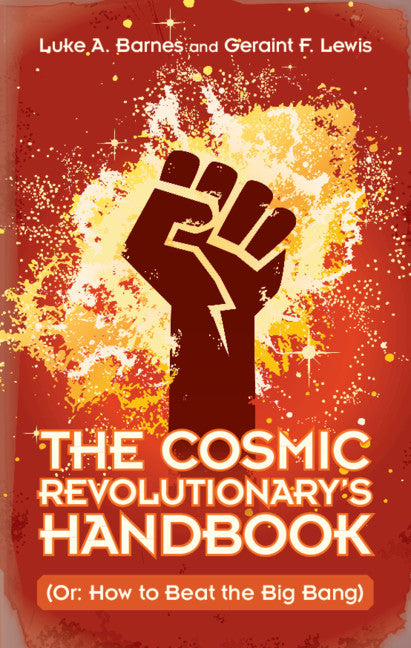Freshly Printed - allow 4 days lead
Couldn't load pickup availability
The Cosmic Revolutionary's Handbook
(Or: How to Beat the Big Bang)
Presents the observations that helped establish our theories of the cosmos, from a unique and engaging perspective.
Luke A. Barnes (Author), Geraint F. Lewis (Author)
9781108486705, Cambridge University Press
Hardback, published 4 February 2020
286 pages, 36 b/w illus.
22.2 x 14.5 x 1.9 cm, 0.47 kg
'The book is well written and includes a bit more 'how' (do we know) in addition to the 'what' of the standard model of cosmology … I enjoyed reading this book; it's a breezy but careful introduction to where we are in our understanding of the Universe and how we got there.' Phillip Helbig, The Observatory
Free yourself from cosmological tyranny! Everything started in a Big Bang? Invisible dark matter? Black holes? Why accept such a weird cosmos? For all those who wonder about this bizarre universe, and those who want to overthrow the Big Bang, this handbook gives you 'just the facts': the observations that have shaped these ideas and theories. While the Big Bang holds the attention of scientists, it isn't perfect. The authors pull back the curtains, and show how cosmology really works. With this, you will know your enemy, cosmic revolutionary - arm yourself for the scientific arena where ideas must fight for survival! This uniquely-framed tour of modern cosmology gives a deeper understanding of the inner workings of this fascinating field. The portrait painted is realistic and raw, not idealized and airbrushed - it is science in all its messy detail, which doesn't pretend to have all the answers.
Preface
Acknowledgements
1. Understanding science
2. How dark is the night?
3. Run for the hills!
4. Going gently into that good night
5. An ever-changing universe
6. The wood for the trees
7. We are (mostly) made of stars
8. Ripples in the night sky
Notes
Further reading
Index.
Subject Areas: Space science [TTD], Cosmology & the universe [PGK], Theoretical & mathematical astronomy [PGC], Astronomy, space & time [PG], Popular science [PDZ], Philosophy of science [PDA], Mathematics & science [P]


